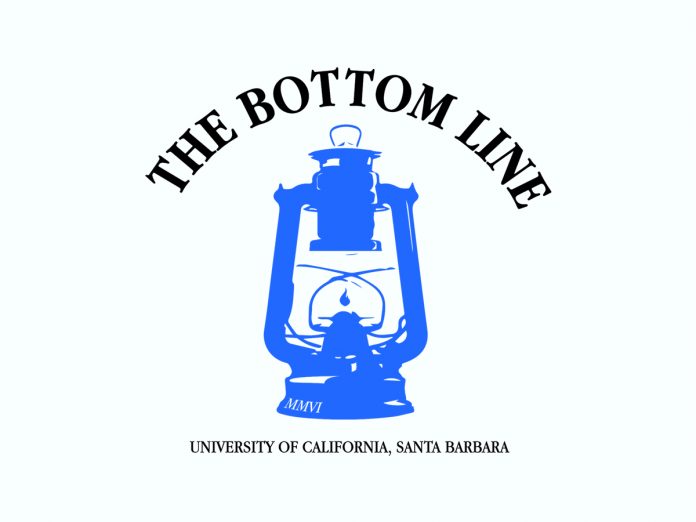Jessica Gang
Opinions Editor
On Jan. 24 and 25, UCSB’s MultiCultural Center (MCC) hosted the opening night of Contemporary Asian American Activism and Intergenerational Perspectives: An Activist-Scholar Symposium, which consisted of an address by keynote speaker Pam Tau Lee titled The Struggle to Abolish Environmental Racism.
The two-day symposium featured various panels on Asian American grassroots activism today, headed by Asian American Studies professors from UCSB, UCLA, and UC Davis, as well as other prominent activists, researchers, and community organizers. The symposium marks a series of events that will occur this year to commemorate the 50th anniversary of UCSB’s Asian American Studies department.
According to their department website, UCSB’s Asian American Studies department was the “very first academic department dedicated to the study of Asian Americans at a major research university, and the first department in the United States to offer a Bachelor of Arts degree in Asian American Studies.”
The symposium was organized by Diane Fujino, professor of Asian American Studies at UCSB, and Robyn Rodriguez, chair of the Asian American Studies department at UC Davis. The event is also sponsored by the UC Davis Bulosan Center for Filipino Studies, the UCSB Center for Black Studies Research, and the Nikkei Student Union, amongst others.
In an interview with The Bottom Line, Professor Fujino spoke about the importance of ensuring that the symposium was supported by various ethnic groups. “There’s a sense of differences, no doubt, that need not be covered over, but also commonalities,” she said in reference to the historical struggles of different racial and ethnic groups.
Fujino began the night remarking on the the importance of allowing the Asian American voices to shine. She then introduced dean of the social studies department, Dr. Charles Hale, who emphasized the duty that public universities have to support student activism on their campuses.
Finally, Pam Tau Lee took to the stage to deliver a rousing speech that celebrated her lifetime of fighting against environmental racism, from her beginnings working with the Hotel and Restaurant Employees Union (Local 2 district) to her most recent ventures, which include protesting at Standing Rock against the Dakota Access Pipeline.
Lee’s speech started off with her personal life: as a young child she grew up in San Francisco’s Chinatown. Her mother worked full time, while her alcoholic father was absent from the family picture.
Lee was raised by her grandmother, who worked in a garment factory, and it was Lee’s childhood memories of being in the garment factory as her grandmother worked alongside hundreds of other underpaid, overworked Asian women that planted the seeds of activism within her, leading to a lifetime of fighting environmental racism.
Environmental racism, as defined by Lee, is racial discrimination in environmental policy, or the deliberate targeting of people of color by housing toxic waste facilities in low-income neighborhoods and encouraging people of color to work there.
Environmental racism, Lee claimed, affects members of all minority groups, and is an opportunity for minority groups to work in conjunction with each other to ensure that all are being treated fairly. It was this mentality that led Lee to Standing Rock, where she and a group of Asian American protesters stood in solidarity with members of the Sioux tribe, who were in danger of having their land taken away.
The MCC was filled to the brim with undergraduates, graduates, and interested members of the public, with latecomers relegated to standing room. Audience members gave Lee a standing ovation at the end of the night, and the event ran overtime as audience members asked their fill of questions to Lee about her thoughts on certain issues, as well as how they could incorporate activism more into their own lives.
Activism was certainly on the mind of audience member Jasmin Castanon-Carrillo, a third year global studies major. In an interview with The Bottom Line, she stated that she found Lee’s focus on “bridging being a student and activist … inspiring.” Castanon-Carrillo also connected with Lee’s mentality of support, saying that “[minorities] all support each other … if one minority wins, we all win, and I really like that message.”
Fujino expressed similar sentiments. “There is no way that one group can have liberation unless we all have liberation,” she stated. When asked what she hopes students and audience members take away from the event, Fujino said that she hopes people “can understand that Asian Americans also have a long history of resistance — [Asian Americans] are used as that model minority … to negate the need for protest. But in my mind … nothing changes in society unless people organize collectively.”
Fujino added that events like this help people come together “not only through the public symposium” — which can help people learn about a wide range of issues — but also through closed-door sessions where people can think about movement-building” as it relates to specific conflicts, as well as discuss and answer many more questions and issues that involve Asian-Americans today.











